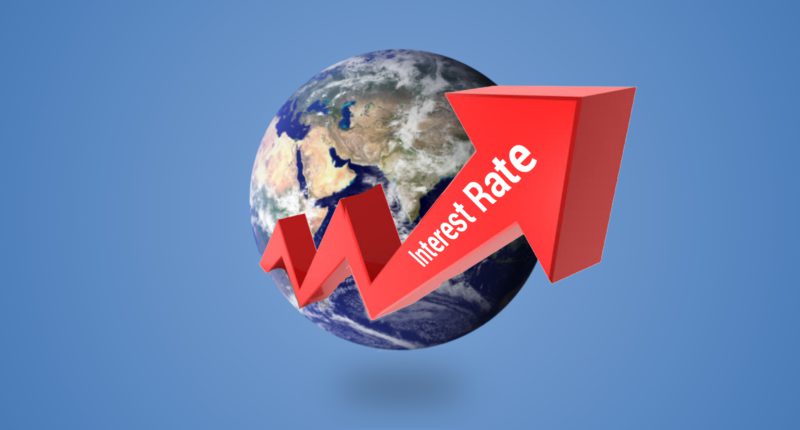Interest rates and inflations are closely related and one explains the other. Inflation occurs when there is too much money chasing too few products. Inflation is an increase in the overall price of goods and services in an economy. When the general price level rises, each unit of currency purchases fewer products and services; hence, inflation equates to a loss of money’s purchasing power.
Why is this happening
This has occurred in recent months amid an increase in demand and supply chain disruptions exacerbated by Russia’s invasion of Ukraine.
The crisis has led to an increase in energy prices and shortage of gas. Food prices have also increased because the countries involved are a major part of the food supply chain e.g Ukraine’s wheat chain
What this entails
Central banks will hike their policy rates to battle inflation. This is the interest rate they charge commercial banks for loans or the interest rate they pay commercial banks for deposits. Commercial banks pass on a portion of these increased rates to their customers, reducing corporate and consumer spending power. Borrowing money for a house or automobile, for example, becomes more expensive.
What a rate increase entails
To appreciate the impact of a rate increase, suppose inflation is 2% but you can earn 4% by putting your money in a savings or money market account. Under these circumstances, you may prefer to conserve rather than spend.
In the end, interest rate increases slow consumption and encourages saving.
Issues first arise when customers spend rather than save, which contributes to rising inflation and erodes any currency’s purchasing power. The banks will boost interest rates on occasion to keep inflation under control and to encourage saving.
Going forward
With inflation rates in several nations reaching multi-decade highs, many central banks have announced interest rate increases.
The Federal Reserve of the United States has been the most aggressive in raising interest rates. Since January, it has boosted its policy rate by 1.5%, with half of that increase taking effect in June 2022. Right now, it is at 3.25%
The Bank of England (BoE) raised interest rates by 0.5%, bringing them to 2.5%, and signalled that the country was already in a recession with an inflation rate of 9.9%
Nigeria increased theirs for the third time to 15.5%

